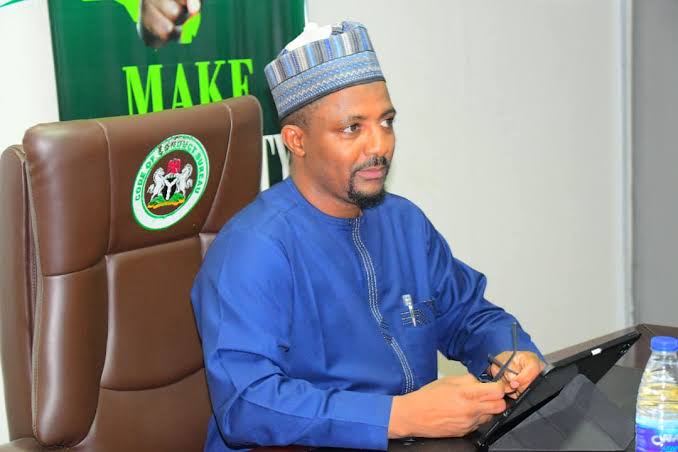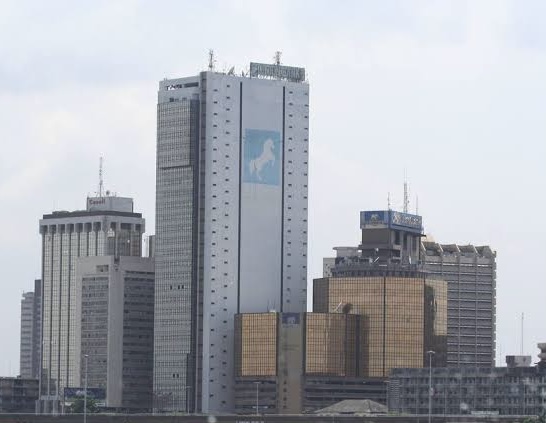
Agape Asanga is the founder of HR Newbies Global Limited and the driving force behind the thriving HR Newbies Community — a global network dedicated to empowering aspiring and early-career HR professionals. With experience across industries such as oil and gas, FMCG, hospitality, and agriculture, she combines hands-on HR expertise with a passion for human capital development. In this interview with Anchor News Online, Asanga discusses the evolution of HR practice in Nigeria, the future of workplace readiness, how emerging professionals can stay relevant, and why she believes mentoring is critical to building the next generation of HR leaders.
You’ve built HR Newbies into a growing community for aspiring HR professionals. Tell us about your journey and what inspired you to start the platform?
HR Newbies wasn’t something I had always dreamt of starting because I never thought I would build a platform or a community. Initially, I wanted to do something in HR and perhaps later transition into another profession.
However, I started the community in January 2024. Before then, I had been posting content on LinkedIn about HR — specifically for career starters. My content was directed towards those beginning their careers but who lacked mentorship or a platform to guide and support them.
In the HR world, there’s a lot of ambiguity, and some people struggle to understand even basic terms and concepts. I wanted to break these things down into simple, relatable language. That was my motivation.
I once put out a LinkedIn post directed at HR professionals who were finding it difficult to navigate the HR space and focus on professional development. By the next morning, my followership had grown significantly — I received countless notifications, comments, and DMs. I was amazed by how many people were facing similar challenges. That was how HR Newbies was born.
When I began my own HR career, I had no one to guide me — no mentor and no community to hold my hand. Most of what I know now came from self-learning and research. I made mistakes, but I learnt from them. So I thought, since I’ve already made those mistakes, others shouldn’t have to.
After starting the LinkedIn content in early 2024, I created a WhatsApp community in February, and by April or May, the community officially took off. In October, I registered it as a company.
What are the biggest challenges HR beginners face when trying to transition from entry-level to a more strategic role?
One of the main challenges is access to mentorship. While there are many HR boot camps and training programmes advertised on platforms like LinkedIn, there aren’t enough people genuinely willing to guide others consistently.
Some organisers run short-term programmes purely for profit. Not to undermine their efforts, but I don’t believe you can grasp HR through a five-week crash course. HR isn’t something you “teach and leave”; it requires mentorship, coaching, and community.
Another challenge is the gap between academic theory and real-world practice. Most university curricula are outdated and don’t prepare graduates for the realities of the workplace. I strongly advocate for curriculum reform — integrating practical, technological, AI, and analytical skills into HR programmes so graduates are better equipped to thrive.
There’s also a lack of strategic exposure. Many HR newbies remain stuck as officers or assistants without clear growth pathways. Organisations should be open to hiring entry-level professionals as trainees, interns, or volunteers, even if they lack experience. Many are willing to learn — that potential should be encouraged.
Unfortunately, recruiters often advertise entry-level positions that still require two to three years’ experience. That contradiction needs to change.
Looking at Nigerian workplaces today, which HR policies or practices do you think organisations are still getting wrong — particularly regarding employee welfare, recruitment, and retention?
In recruitment, organisations should prioritise willingness to learn and create platforms that support employee growth.
For employee welfare, many companies only act when there’s a crisis. We must start being proactive. Policies on welfare, salary structure, and employee development should exist from the outset — including provisions for HMOs, allowances, and even 13th-month salaries, which can greatly boost morale.
I also think many organisations preach diversity, equity, and inclusion without practising them. Some workplaces still foster cliques or circles, making inclusion difficult.
Retention is another problem. Some organisations take a transactional view of employees, assuming that if one person leaves, another will replace them. Few have proper systems to reduce turnover and increase engagement.
Onboarding is also neglected. New employees are often expected to start working immediately without proper orientation. Yet onboarding — and even pre-boarding — is crucial for building trust and integrating new hires into a positive culture.
Finally, leave and rest are underrated. Some employees get as little as six days of annual leave. That’s not conducive to mental health or sustainable productivity.
Workplace disputes and toxic cultures remain common in Nigeria. How can HR professionals ensure conflicts are handled fairly and transparently while fostering inclusivity, trust, and accountability?
It begins with clear and transparent policies on conflict management and resolution. Employees must know that proper structures exist to address disputes.
The foundation is trust. If employees don’t trust the system, they’ll assume conflict resolution is biased. HR departments must ensure fair processes, thorough investigations, and proper documentation.
It’s also essential to differentiate between investigation and retaliation. Everyone involved should be carried along in the process. Transparency and consistency are key to preventing toxicity and promoting accountability.
With AI and HR tech transforming talent management, what should both HR newbies and established professionals focus on?
They should focus on automation and adaptation. AI isn’t coming to take jobs — it’s here to make work more efficient. Rather than resisting it, we must learn to use it.
Automation reduces repetitive manual tasks. For instance, Applicant Tracking Systems (ATS) now handle CV screening and interview scheduling, freeing HR professionals to focus on strategic work.
Another key area is HR analytics — interpreting data to make informed decisions. For example, if attendance data shows frequent sick leave, that insight can inform the introduction of HMOs or wellness initiatives.
HR tech also strengthens data privacy. Digital HR Information Systems (HRIS) protect employee records far better than paper files.
Lastly, AI can help remove bias from recruitment and performance evaluations, ensuring fairer, data-driven outcomes.
What recurring themes have you observed from the HR Newbies community that highlight systemic issues in Nigeria’s HR practice?
A major issue is under-investment in managerial capability. Many HR professionals remain at junior levels for years with no structured career pathway or capacity-building opportunities.
There’s also inconsistency in enforcing labour laws. For example, some organisations still deduct employees’ salaries for lateness — which is illegal under Nigerian labour law.
Another systemic challenge is limited access to affordable, practical learning. When I conducted a poll within the HR Newbies community, most respondents cited financial constraints and a lack of credible information as barriers to professional certification.
The HR Newbies platform aims to fill that gap by providing free or affordable access to relevant resources. Ultimately, Nigeria’s HR system needs clearer career ladders, fairer pay structures, and more investment in professional development.
What are the most important HR trends shaping Nigerian workplaces today, and how should HR professionals prepare for them?
The key trends include artificial intelligence, HR technology, hybrid work models, and a growing emphasis on employee well-being.
Mental health, diversity, equity, inclusion, and belonging are becoming integral to HR practice. Another emerging trend is internal mobility — helping employees grow within their organisations rather than constantly hiring externally.
To stay prepared, HR professionals must embrace digital literacy and data analytics. Continuous learning is non-negotiable.
Everyone should regularly audit their skills — both soft and hard — and invest in upskilling. There are abundant resources available online.
Within HR Newbies, we provide a resource hub filled with templates, guides, videos, and articles to help members learn and grow continuously.
Finally, what’s your advice for HR professionals — whether beginners or established — on building workplaces that are future-ready and people-centred?
First, have clarity of purpose. Know what you want to achieve — whether in capability, productivity, well-being, or retention. Don’t walk into any initiative blindly; always have a clear strategy.
For beginners, be curious about the business. HR is not just about drafting policies or policing attendance — it’s about understanding how HR drives business growth. Learn HR analytics, embrace AI tools, and stay open-minded.
Find and engage with mentors — even if it’s through LinkedIn or other platforms. Read, follow, and learn from them.
For senior HR leaders, the priority should be empowering the next generation. Equip mid-level and entry-level professionals with the right skills through coaching and structured career frameworks.
Finally, prioritise psychological safety and mental health. A people-centred workplace is not about slogans — it’s about creating a culture where employees feel safe, valued, and able to grow.












